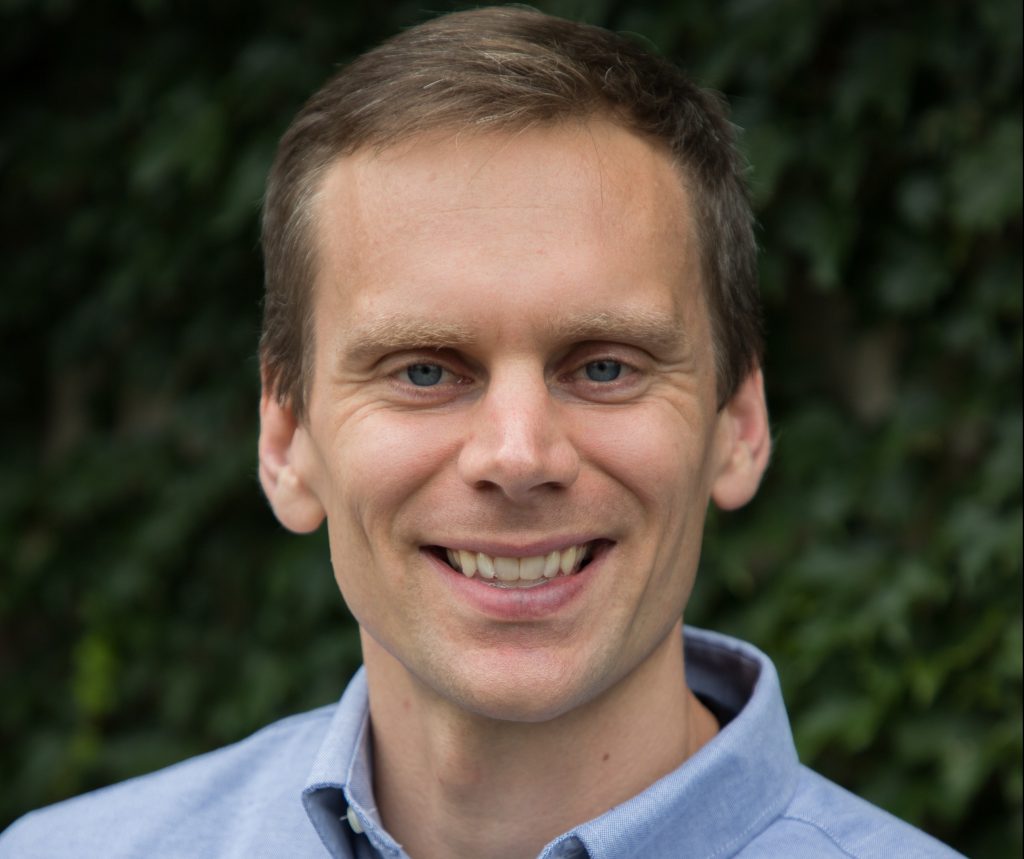We’re taking time over the following weeks to get to know the members of the GSA’s Early Career Scientist Committees. Join us every week to learn more about our 2019 early career scientist advocates.

Mahlon Collins
Communications & Outreach Subcommittee
Department of Genetics, Cell Biology, and Development; University of Minnesota
Research Interest
I study protein degradation, an essential biological process that occurs continuously throughout the life of a cell. Cells selectively degrade proteins to regulate their abundance, rid themselves of damaged and misfolded proteins, and respond to environmental signals. Because of the many functions protein degradation serves, this process is tightly regulated and impairments in this regulation are linked to a diverse array of human diseases including cancers, neurodegenerative diseases, immune disorders, and aging.
My research explores how genetic variation shapes protein degradation. Several lines of indirect evidence point to heritable genetic differences in protein degradation as important mediators of disease risk and aging. However, the technical challenges of measuring protein degradation in large samples have prevented us from exploring this link fully. I am bridging this gap by combining the power of the yeast Saccharomyces cerevisiae for complex trait genetics with new reporters of protein degradation I designed and characterized. These reporters allow me to rapidly assay protein degradation in millions of cells, giving me the power to systematically measure how DNA sequence differences throughout the genome affect protein degradation. I am using these tools to explore how genetic variation affects both the activity of the cell’s main protein degradation pathway, the ubiquitin-proteasome system, and the degradation of individual cellular proteins. These efforts are providing new insights into basic questions about how cellular physiology is shaped by genetic variation and into the complex genetic basis of diseases marked by impaired protein degradation.
As a PhD-trained scientist, you have many career options. What career paths interest you the most?
My primary career goal is to continue to conduct scientific research. Because of the freedom it affords and the opportunity to train and inspire the next generation of scientists, I will pursue a career in research at an academic institution. My training experiences have been diverse and include research and training in psychology, neurobiology, and genetics addressing both basic and applied research questions.
I am grateful for the opportunity to leverage my interdisciplinary expertise to answer fundamental questions about genetic variation and protein degradation as a postdoctoral researcher. Likewise, I have a deep belief in the importance of basic research, both as a means of understanding the natural world and solving the problems we face as a society. I believe the flexibility of an academic career is the best way for me to utilize my diverse skill set for the betterment of society.
I am equally passionate about engaging and training future scientists. I was fortunate to have the opportunity to teach two semesters of a research methods course as part of my graduate training. For the course, students developed their own research projects, collected data, and analyzed the results. The students’ excitement as their results took shape remains one of the best memories of my graduate career. I eagerly look forward to similar experiences, both as a researcher and instructor. More broadly, it is an immense privilege to convey the fundamental importance of science to our everyday lives and the rich rewards scientific knowledge and thinking provide. I hope to engender the same fascination with the natural world and scientific curiosity that my mentors instilled in me in others.
In addition to your research, how else do you want to advance the scientific enterprise?
I hope to convey to the public the excitement and possibilities of genetics. During my graduate training, I researched molecular mechanisms of neurodegenerative diseases. During that time, I presented my work to disease patients and their families; Seeing a passion for scientific knowledge in non-scientists was deeply inspiring. Patients and their families were eager to discuss my work with me, read scientific journals in their spare time, and attend scientific meetings. As the field of genetics becomes more important in matters of health, agriculture, and technology, I am eager to see the field reach out to non-scientists and engender a similar enthusiasm for and knowledge of genetics concepts and discoveries. By doing so, we fulfill one of our most important responsibilities as scientists and help the public understand the importance of genetics in their everyday lives.
I also hope to advance the training of early-career scientists. In an increasingly competitive scientific environment, promoting professional development, enhancing knowledge of career options, and fostering community among scientists are essential to developing a strong and productive scientific workforce. I am currently participating in the GSA’s Peer Review Training Program, and have seen firsthand how training opportunities can promote professional development. Unfortunately, many of the mentoring and leadership skills that scientists need are not formally taught in graduate programs. Instead, trainees rely on observational, informal experiences whose effectiveness and content varies considerably. I would like to help GSA continue to develop mentoring and leadership training programs for early career scientists. Efforts such as these will help establish a vibrant and productive community of early career scientists that will have the requisite skills, experience, and connections needed to succeed in today’s scientific environment.
As a leader within the Genetics Society of America, what do you hope to accomplish?
As a member of the Communication and Outreach Subcommittee, I hope to convey the same enthusiasm for the field I feel through communication pieces that explore the latest findings in genetics and explain their implications. Similarly, I would like to help those outside the field of genetics become more fluent with genetics concepts and methodologies. Beyond, the specific goals of the Communications and Outreach subcommittee, I look forward to working together with other GSA members. I have found the genetics community to be supportive, nurturing, and collaborative. I am excited to continue to build my professional network through this opportunity and help others expand their own.
Previous Leadership Experience:
Graduate Student Mentor – University of Minnesota
Activity Leader – “Meeting the Brain,” University of Minnesota
President – Roundup Toastmasters
Crew Leader in Training – Habitat for Humanity













